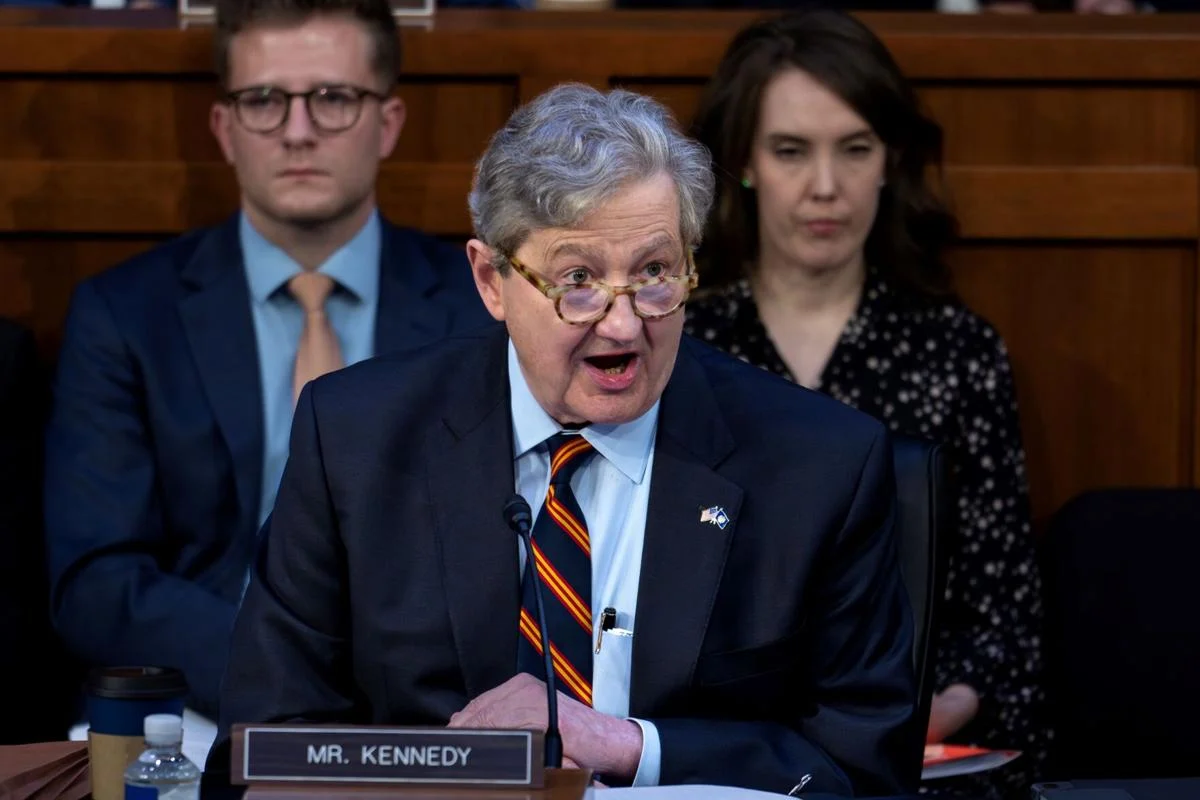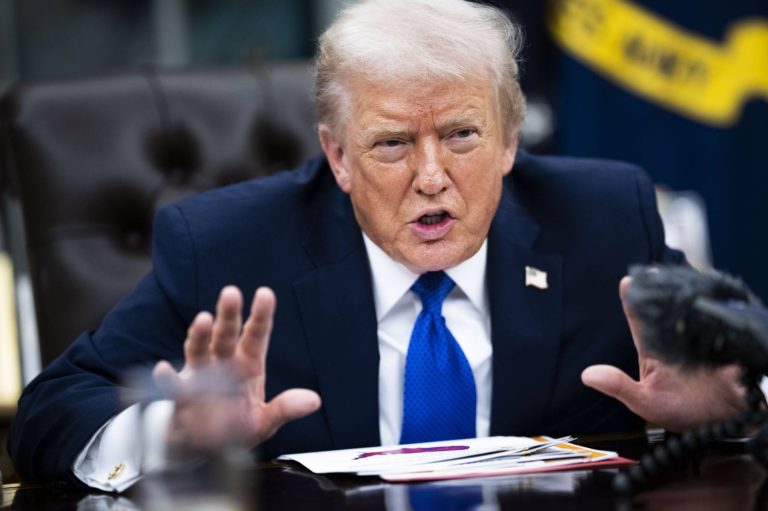National Public Radio (NPR) Chief Executive Officer Katherine Maher recently appeared on CNN News Central to address longstanding allegations that NPR exhibits political bias in its coverage and editorial decisions. During the interview, Maher firmly maintained that NPR operates as a non-partisan news organization committed to serving all Americans, despite years of criticism from various corners regarding its journalistic integrity and public comments by its leadership.
“When it comes to the accusation of bias, I would start, as I always start out by saying, that we of course are a non-partisan organization and we want to serve and are required to serve the entirety of the American public,” Maher stated, underscoring NPR’s official stance on its mission and role in the media landscape.
Her remarks came amid heightened political scrutiny following the U.S. Senate’s recent approval of President Donald Trump’s $9 billion rescissions package, which includes substantial cuts to foreign aid and terminates federal funding for a nonprofit public broadcasting entity that supports NPR and PBS. The funding cuts have intensified debate about the role and funding of public broadcasters in the United States, drawing criticism and support from different political factions.
https://rumble.com/v6wbe6m-npr-ceo-still-wants-you-to-believe-her-network-isnt-completely-biased.html
Controversies Shadowing NPR’s Leadership and Coverage
While Maher emphasized NPR’s commitment to impartiality, critics point to her own public statements prior to her appointment as CEO. In 2018, Maher called then-President Trump a “racist,” and in 2020, she described him as a “deranged racist sociopath.” Additionally, she wrote in 2020 that the United States is “addicted to white supremacy.” These remarks have fueled accusations of partisan bias and have cast doubt on NPR’s claim of neutrality.
NPR’s editorial record itself has sparked controversy over the years. Notably, during the 2020 presidential election, the network chose not to cover the Hunter Biden laptop story in the final weeks before the vote, citing a desire not to “waste listeners and readers time on stories that are just pure distractions.” This decision was met with sharp criticism from conservatives who accused NPR of selectively suppressing news unfavorable to Democratic candidates.
Other examples of contentious coverage include NPR’s 2018 report that alleged Donald Trump Jr. lied to the Senate Judiciary Committee about discussions involving a Trump Tower project in Moscow—a report later proven inaccurate and based on mistaken information about a separate real estate project.
During the COVID-19 pandemic, NPR was also criticized for dismissing the lab leak theory as “debunked” early on, only for the theory to gain wider scientific consideration later. Furthermore, NPR paused its coverage of President Trump’s coronavirus task force briefings in Seattle in March 2020, a decision that drew backlash from listeners who wanted real-time updates.
https://twitter.com/SenJohnKennedy/status/1945554067775795373
Broader Cultural and Editorial Criticism
Beyond political coverage, NPR has attracted attention for running stories suggesting that topics as varied as country music and birdwatching could be considered “racist,” and for continuing to highlight narratives about alleged collusion between the Trump campaign and Russia despite mixed evidence.
The network also ventured into debates over gender and sports, publishing pieces questioning whether men have inherent biological advantages over women—reports that elicited pointed criticism from Republican Senator John Kennedy of Louisiana during a Senate floor speech. Senator Kennedy’s remarks underscored concerns about NPR’s editorial choices and perceived ideological slant.
In April 2024, longtime NPR editor Uri Berliner voiced concerns in The Free Press about NPR’s drift from traditional journalistic missions. Berliner criticized the network for pushing the Russia collusion narrative and prioritizing identity-focused reporting over objective news coverage, highlighting a lack of “viewpoint diversity” within the organization.
https://twitter.com/SenJohnKennedy/status/1945554072745996335
Political Reactions and Future Outlook
When asked about Maher’s assertion that funding cuts to NPR could pose a public safety risk, White House Press Secretary Karoline Leavitt dismissed the claim, labeling NPR and PBS as “propaganda voices” for the political left.
The Senate’s passage of the rescissions package marks a significant shift in federal support for public broadcasting, effectively ending decades of funding streams. Alongside the cuts to public media, the legislation also targets overseas aid and other discretionary spending deemed by the White House as “wasteful” or “duplicative.”
As NPR faces both financial challenges and ongoing accusations of political bias, the future role of publicly funded media in the American information ecosystem remains a contentious and evolving issue.
https://twitter.com/DailyCaller/status/1945910636350677017

Sarah Mitchell is a bestselling novelist recognized for her insightful and emotionally resonant stories that explore the complexities of human relationships. Originally from Denver, Colorado, Sarah grew up in a family of teachers who nurtured her curiosity and love for storytelling. She studied psychology at Stanford University, where she became fascinated by the intricacies of human behavior—an interest that would later shape her writing career. Sarah’s novels are praised for their nuanced characters, intricate plots, and ability to capture the subtle tensions that define love, friendship, and family ties. Her breakthrough novel, The Spaces Between Us, became an instant bestseller, lauded for its honest portrayal of strained family relationships and the fragile bonds that hold people together. Since then, she has published several works that continue to captivate audiences around the world. Outside of her writing career, Sarah is passionate about mental health advocacy and often partners with organizations to promote awareness and support for those struggling with emotional well-being. Her personal life is quieter—she enjoys hiking in the Colorado mountains, practicing yoga, and spending time with close friends. With each new book, Sarah Mitchell cements her reputation as a writer who illuminates the beauty and struggles of human connection.









